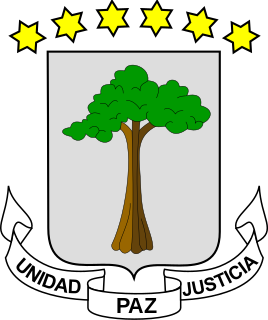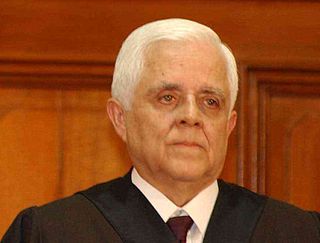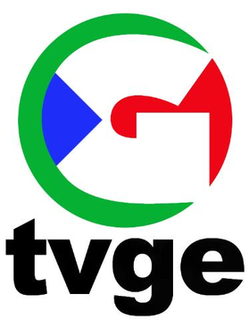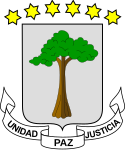
Equatorial Guinea, officially the Republic of Equatorial Guinea, is a country on the west coast of Central Africa, with an area of 28,000 square kilometres (11,000 sq mi). Formerly the colony of Spanish Guinea, its post-independence name evokes its location near both the Equator and the Gulf of Guinea. As of 2021, the country had a population of 1,468,777.

The politics of Equatorial Guinea take place in a framework of a presidential republic, whereby the President is both the head of state and head of government. Executive power is exercised by the government. Legislative power is vested in both the government and the Chamber of People's Representatives

The government's official policy is one of nonalignment. In its search for assistance to meet the goal of national reconstruction, the government of Equatorial Guinea has established diplomatic relations with numerous European and Third World countries. Having achieved independence under UN sponsorship, Equatorial Guinea feels a special kinship with that organization. It became the 126th UN member on November 12, 1968. Equatorial Guinea served as a non-permanent member on the United Nations Security Council from 2017 to 2019.

Elizabeth Odio Benito is a judge who serves as President in the Inter-American Court of Human Rights since 2016. She is the first woman to hold this position. She was a Vice-President of the International Criminal Court. She previously served as a judge on the International Criminal Tribunal for the Former Yugoslavia, and in her home country of Costa Rica was twice appointed Justice Minister, later becoming Vice-President of the Republic. Her background is as an academic lawyer, specialising in the administration of justice and human rights, in particular the rights of women.

Annobón, and formerly as Anno Bom and Annabona, is a province of Equatorial Guinea consisting of the island of Annobón, formerly also Pigalu and Pagalu, and its associated islets in the Gulf of Guinea. According to the 2015 census, Annobón had 5,314 inhabitants, a small population increase from the 5,008 registered by the 2001 census. The official language is Spanish but most of the inhabitants speak a creole form of Portuguese. The island's main industries are fishing and forestry.

Genaro David Góngora Pimentel is a Mexican jurist who was a member of the Supreme Court of Justice of the Nation (SCJN) from 1995 to 2009 and served as its President from 1999 to 2003.

Equatorial Guinea is a Christian majority country, with Islam being a minority religion. Due to the secular nature of the country's constitution, Muslims are free to proselytize and build places of worship in the country.
Silvestre Siale Bileka is an Equato-Guinean politician. Bileka served as Prime Minister from 4 March 1992 to 1 April 1996. He is a member of the Partido Democrático de Guinea Ecuatorial. Bileka also served as President of the Supreme Court, tendering his resignation to President Teodoro Obiang Nguema in January 2004. The official reason for his resignation was "not being able to reach the desired result in terms of improvement of the operation of the judiciary". He was the first senior state official to resign, as the President usually instead simply dismissed his colleagues. He is a Bubi.
According to Article 3 of the Constitution of Equatorial Guinea, the country is divided for administrative and economic purposes into regions, provinces, districts, and municipalities. In practice, the provinces serve as the first-level administrative divisions. Municipalities are subdivided into village councils and neighbourhood communities. Many of the sub-municipal entities are grouped into urban districts, which remain subordinate to municipalities and are distinct from districts proper.

The Bar Association of Puerto Rico (BAPR) or Colegio de Abogados de Puerto Rico (CAPR) is the bar association of Puerto Rico. It is the oldest professional association in Puerto Rico, and among the oldest bar associations in the world.

All visitors to Equatorial Guinea, unless they come from one of the visa exempt countries mentioned below, must obtain a visa from one of the Equatorial Guinea diplomatic missions prior to arrival.
Santiago Nsobeya Efuman Nchama was an Equatoguinean politician with the Democratic Party of Equatorial Guinea.
Miss Equatorial Guinea is an annual national beauty pageant in Equatorial Guinea. And the winner of the present edition is Alba Isabel Obama from Mbini.

Political corruption in Equatorial Guinea is high by world standards and considered among the worst of any country on earth. It has been described as "an almost perfect kleptocracy" in which the scale of systemic corruption and the rulers' indifference towards the people's welfare place it at the bottom of every major governance indicator or ranking, below nations with similar per capita GDPs.

The Equatoguinean Academy of the Spanish Language is an association of academics and experts on the use of the Spanish language in Equatorial Guinea, a republic in Central Africa in which Spanish is the national official language. Equatoguinean Spanish is the particular variety of Spanish spoken in the country. Since 19 March 2016, Equatorial Guinea has been a member of the Association of Spanish Language Academies.

Equatorial Guinea–Spain relations refers to the diplomatic relations between the Republic of Equatorial Guinea and the Kingdom of Spain. Both nations are members of the Association of Academies of the Spanish Language, Organization of Ibero-American States and the United Nations.

Televisión de Guinea Ecuatorial is an Equatorial Guinean state television channel, which is part of the public media system called Radio Televisión de Guinea Ecuatorial (RTVGE).

Equatorial Guinea–Mexico relations are the diplomatic relations between the Republic of Equatorial Guinea and the United Mexican States. Both nations are members of the Association of Academies of the Spanish Language, Organization of Ibero-American States and the United Nations.
During the afternoon of 7 March 2021, a series of four explosions occurred at a military barracks in the neighborhood of Nkoantoma, a district of Bata, the largest city and commercial capital of the Central African country of Equatorial Guinea. At least 107 people died, and more than 600 others were injured, while significant infrastructural damage also occurred throughout the city.











